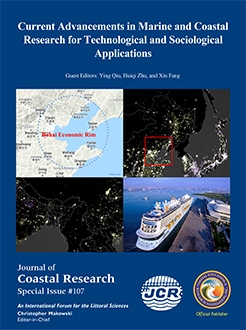Bai, Y.-X. and Yu, Y., 2020. Local adaptive denoising of phytoplankton image based on minimum bayes risk. In: Qiu, Y.; Zhu, H., and Fang, X. (eds.), Current Advancements in Marine and Coastal Research for Technological and Sociological Applications. Journal of Coastal Research, Special Issue No. 107, pp. 29-32. Coconut Creek (Florida), ISSN 0749-0208.
Marine phytoplankton is an important marine biological resource. We can classify and identify marine phytoplankton, which is classified and quantitatively analyzed under the microscope. However, denoising is an important part of image processing. By analyzing the histogram of noisy image, we can make adaptive denoising according to Bayes decision of minimum error rate. Through the scanning system of microscope and computer, we can form a set of adaptive desiccation of phytoplankton, which is of great significance for the identification of phytoplankton species. Through the improvement of image acquisition, image processing and feature selection, we can automatically identify marine phytoplankton, which will provide a new real-time, fast and efficient detection platform for marine ecological environment monitoring. Firstly, this paper analyzes the minimum Bayesian risk. Then, this paper demonstrated the adaptive desiccation of phytoplankton. Finally, some suggestions are put forward.





